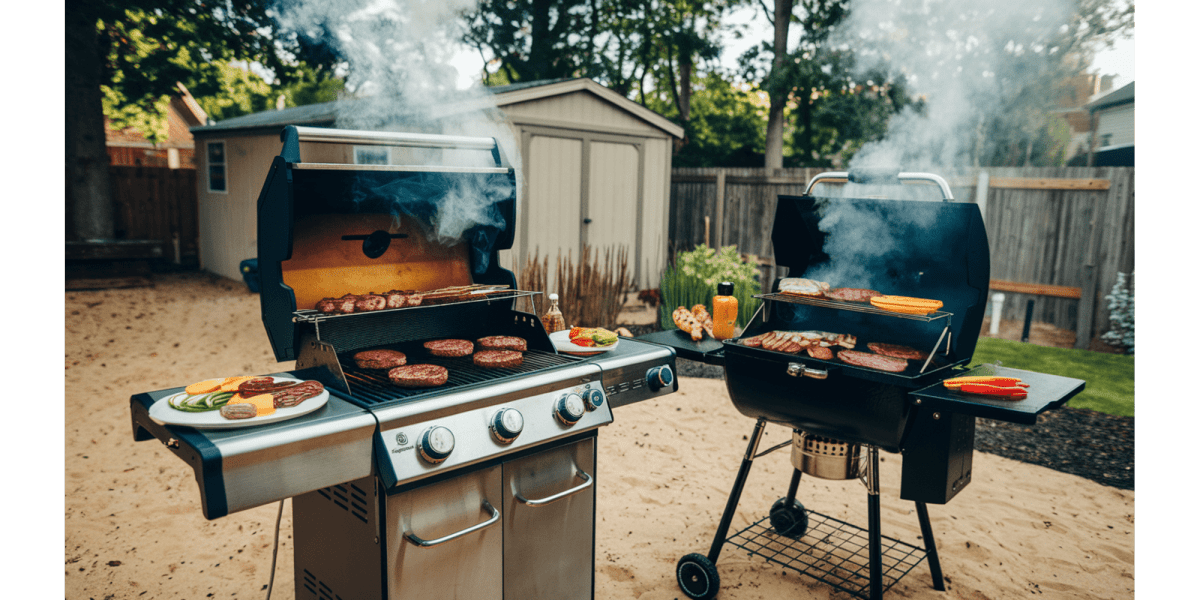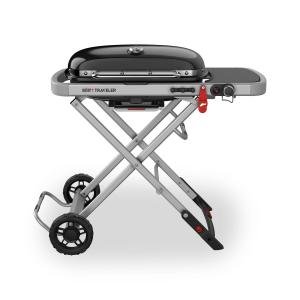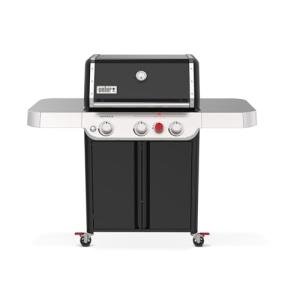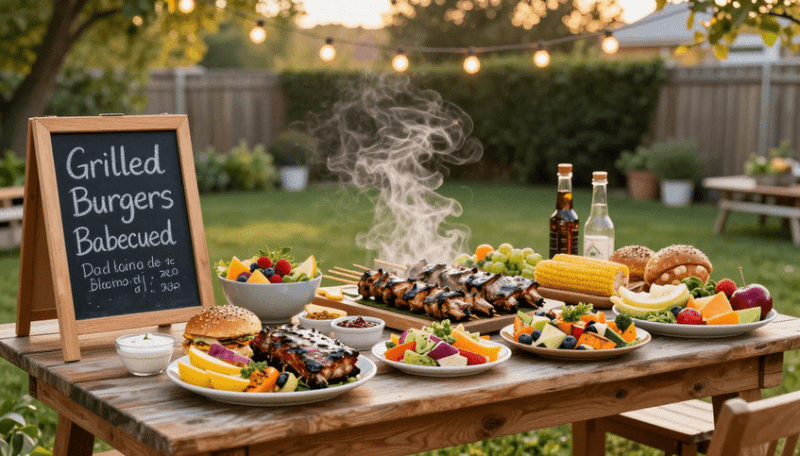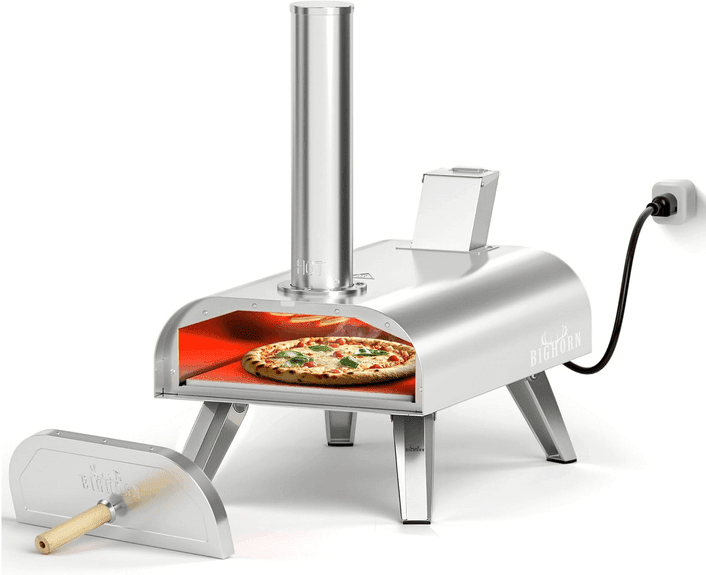Choosing between gas and charcoal grilling can be a tough decision for many grill enthusiasts. Gas grills offer convenience and quick heating, making it easy to fire up a delicious meal in no time. On the other hand, charcoal grills are often favored for the rich flavor they add to food, providing a truly authentic grilling experience. Each option has its unique benefits and drawbacks that can impact the cooking process and final taste of the dishes.

Understanding the fundamentals of each grilling method is essential for anyone looking to enhance their outdoor cooking skills. With a variety of flavors, heating times, and cooking styles available, this article will help grill lovers determine which type best fits their lifestyle and preferences. Whether someone values the speed of gas or the smoky taste from charcoal, knowing the pros and cons of each can make all the difference.
Key Takeaways
- Gas grills heat up quickly, while charcoal grills take longer to reach cooking temperatures.
- Charcoal can provide a unique flavor that many grilling experts appreciate.
- The choice between gas and charcoal ultimately depends on personal preferences and cooking styles.
Fundamentals of Grilling
Grilling is a popular cooking method that brings out the flavor in food. Understanding the differences between grilling with charcoal and gas can help grill enthusiasts make informed choices. Both methods offer unique experiences and results.
Grilling with Charcoal
Charcoal grilling is known for its rich, smoky flavor. Using charcoal briquettes or lump charcoal, the heat is created through combustion. This method requires a bit more effort, as it takes time to light the charcoal and reach the desired temperature.
The grilling process involves:
- Lighting the Charcoal: Use a chimney starter or lighter fluid to ignite the charcoal.
- Heat Control: Adjusting the airflow by opening or closing vents helps control the temperature.
- Cooking Techniques: Direct grilling is great for searing, while indirect grilling allows for slower cooking.
Charcoal grills often achieve higher temperatures, making them ideal for grilling meats and vegetables. The flavor added by the smoke is often preferred for traditional barbecue dishes.
Grilling with Gas
Gas grilling offers convenience and ease of use. Propane or natural gas burners allow for quick heating and precise temperature control. With a push of a button, the grill is ready to cook in minutes.
Key aspects of gas grilling include:
- Ignition: Most gas grills come with an automatic ignition system for hassle-free lighting.
- Temperature Control: Turning knobs adjusts the flame, providing better control over cooking temperatures.
- Cleaning and Maintenance: Gas grills are generally easier to clean since there is no ash residue.
While gas grills may not provide the same smoky flavor as charcoal, they excel in convenience and versatility. They can easily accommodate a variety of cooking styles and recipes.
Pros and Cons

When choosing between gas and charcoal grilling, it is important to understand the advantages and challenges of each. Each type of grill offers different experiences for the user, affecting flavor, convenience, and maintenance.
Advantages of Charcoal Grilling
Charcoal grilling is known for its ability to produce a distinct smoky flavor that many enthusiasts love. The burning charcoal contributes to a deeper taste, which enhances meats and vegetables.
Heat Control:
Charcoal grills allow for superior heat control. By adjusting the air vents, users can manage the temperature effectively. This option helps in slow cooking and achieving that perfect sear.
Cost-Effective:
Charcoal grills are generally less expensive than gas grills. They can be a more affordable option for beginners or those who grill occasionally.
Advantages of Gas Grilling
Gas grilling provides quick and easy setup. A propane or natural gas grill ignites instantly, offering convenience for those short on time.
Temperature Management:
With easy knobs to control heat, gas grills ensure precise temperature settings. Users can adjust the heat instantly, allowing for steady cooking that can be beneficial for various types of food.
Less Cleanup:
Cleaning a gas grill is often easier than cleaning a charcoal grill. There are no ashes to dispose of, just a quick brush for maintenance.
Challenges of Charcoal Grilling
While charcoal grilling has its perks, there are some drawbacks.
Longer Preparation Time:
Lighting charcoal takes longer than turning on a gas grill. Users must wait for the coals to reach the right temperature before cooking.
Ash Disposal:
After grilling, disposing of ash can be messy. Regular maintenance is necessary to keep the grill in good shape.
Challenges of Gas Grilling
Gas grilling is convenient but comes with its own set of issues.
Flavor Limitations:
Gas grills may not provide the same smoky flavor that charcoal grills do. This can be a dealbreaker for purists who prefer traditional tastes.
Higher Initial Cost:
Gas grills usually have a higher initial purchase price compared to charcoal models. This can be a significant factor for those on a budget.
Health and Environmental Considerations

When choosing between gas and charcoal grilling, health and environmental effects play a significant role. Each method has its unique implications that can impact food safety and eco-friendliness.
Health Implications
Gas grilling tends to produce fewer harmful chemicals compared to charcoal. Charcoal can release carcinogens, which are substances known for increasing cancer risk. When food is cooked over charcoal, it may absorb these chemicals, potentially affecting health. In contrast, gas grills often result in a cleaner burn and eliminate the risk of flare-ups that can char food. This means gas grilling typically retains more nutrients in food.
Additionally, proper ventilation is crucial for both methods. Smoke from charcoal can contain fine particles that may irritate the lungs. Using a gas grill often leads to reduced smoke exposure, providing a healthier grilling experience.
Environmental Impact
The environmental effects of grilling options are noteworthy as well. Charcoal production involves cutting down trees and can release more carbon into the atmosphere. This contributes negatively to climate change. In comparison, gas grills generate fewer greenhouse gases during use.
Many argue that gas is a cleaner option, not only for air quality but also because gas systems often have lower carbon footprints. While charcoal grilling enthusiasts appreciate the authentic smoky flavor, environmental considerations lean towards gas as the greener choice. Switching to propane or natural gas can further reduce risks to the planet.
Making the Choice

Choosing between gas and charcoal grilling involves considering lifestyle, budget, and maintenance. Each factor plays a significant role in how enjoyable grilling can be.
Lifestyle and Preference
A person's lifestyle significantly affects their grilling choice. Those who value convenience may prefer gas grills. They ignite quickly and reach cooking temperature within minutes. This speed suits busy schedules and spontaneous outdoor meals.
In contrast, charcoal grilling attracts those who enjoy the process. The act of lighting the charcoal and waiting for the right temperature can be rewarding. It allows for a more hands-on approach and often results in richer, smoky flavors. Many enthusiasts believe that better flavor comes with charcoal grilling despite needing more time.
Preference for outdoor gatherings or formal barbecues also influences the decision. Gas grills are often cleaner and provide a steady heat for larger groups. Charcoal enthusiasts may enjoy the communal aspect of preparing and waiting for the coals to be ready.
Budget and Cost
Cost can be a crucial factor in deciding between gas and charcoal grills. Gas grills often have a higher initial purchase price. However, they are typically more economical in the long run. Refilling a propane tank or connecting to natural gas usually costs less than buying charcoal regularly.
Charcoal grills are generally cheaper upfront. They can be an excellent option for those who want to start grilling without a significant financial commitment. However, the price of charcoal can add up over time, especially for frequent users.
When assessing the budget, buyers should consider additional costs as well. Gas grills might need repairs or replacement parts, while charcoal grills may require accessories like chimney starters or grill tools.
Frequently Asked Questions

Many people have questions when choosing between gas and charcoal grilling. This section addresses common inquiries regarding health implications, taste differences, environmental impact, and specific concerns related to each grilling option.
What are the health implications of using a gas versus a charcoal grill?
Using a gas grill generally produces fewer harmful chemicals than charcoal grilling. Gas grills emit lower levels of smoke and soot, reducing exposure to dangerous compounds. Charcoal can release more particulates, which may affect respiratory health when inhaled.
Does the type of grill used affect the taste of the food?
Yes, the type of grill can influence the flavor of the food. Charcoal grills are known for imparting a smoky flavor that many people enjoy. In contrast, gas grills offer a cleaner taste, allowing the natural flavors of the food to shine through without extra smoke.
Is there a difference in carcinogen levels when grilling with gas versus charcoal?
Research suggests that charcoal grilling can produce higher levels of carcinogens due to the incomplete combustion of coal. Gas grilling typically produces fewer hazardous compounds, resulting in lower carcinogen levels in food.
Which grilling option is more environmentally friendly: Gas or charcoal?
Gas grills are generally considered more environmentally friendly. They produce less carbon dioxide and other pollutants during use compared to charcoal grills. Some gas options also use propane, which has a smaller carbon footprint than coal.
What are the health considerations when comparing gas, charcoal, and pellet grills?
Each type of grill has unique health considerations. Charcoal can produce harmful smoke and particulates. Gas grills offer convenience and lower emissions, while pellet grills, using compressed wood pellets, can provide a balance of smoky flavor and reduced pollutants.
What are some common drawbacks of using a charcoal grill?
Charcoal grills take longer to heat up compared to gas grills. They also require more effort for cleanup and can be more challenging to control temperature. Additionally, charcoal grilling may not be ideal for those with respiratory issues due to the smoke produced during cooking.
DISCLAIMER
This document is provided for general information purposes only. It should not be relied upon as providing legal advice, technical, or specific operational guidance to the reader, whether as to the practices described in the document or the applicable legal requirements and regulations. Backyard Grilling Pros.com expressly disclaims any responsibility for liability arising from or related to the use or misuse of any information in this document.
